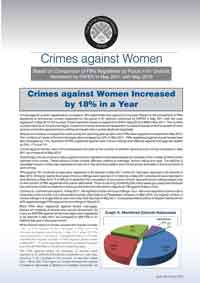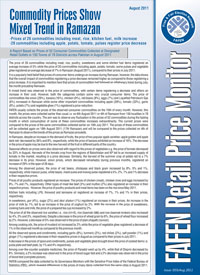ISLAMABAD, August 10, 2011: A FAFEN report on Wednesday said a quarter of the Rural Health Centers (RHCs) monitored nationwide in June this year did not have staff to run the programs to control diarrhea and malaria.
“Nationwide 26% of the monitored RHCs lacked staff to run the Control of Diarrheal Diseases (CDD) program while 22% did not have staff to run the Malaria Control Program (MCP),” according to the report based on monitoring of 97 RHCs in 66 districts across Pakistan. More than half of the RHCs monitored in Khyber Pakhtunkhwa (KP) did not have staff to run either program.
FAFEN Governance Monitors monitored the RHCs in June 2011.
Furthermore, it said poor conditions of physical infrastructure and lack of medical services and essential equipment were also noted.
“Eighty eight percent of the monitored RHCs lacked ophthalmology rooms while 15% did not have rooms for dentistry. Basic equipment required for diagnoses of diseases, like ECG and X-ray machines, were also not present in 57% and 35% RHCs respectively across the country.”
However, the report said most of the monitored RHCs (97%) nationwide had staff to run the Extended Immunization Program (EPI), indicating that vaccination services were offered at a majority of the monitored RHCs except for two in KP. Female staff was present to attend to female patients in 91% of the monitored RHCs.
The report said clean drinking water, washrooms with running water and properly shaded waiting areas were lacking in the RHCs monitored nationwide.
“In KP, more than half – 56% and 65% respectively – of the monitored facilities lacked both clean drinking water and washrooms, while nearly two-fifths did not have waiting areas. Similarly, half of the monitored facilities in Sindh did not have washrooms, 45% did not have clean drinking water and 32% lacked waiting areas. None of these facilities were available in the RHCs monitored in Balochistan.”
The report blames lack of oversight on the part of elected representatives and government officials for these shortcomings. “During April–June 2011 quarter, only nine visits were made by the members of the provincial assembly to the monitored RHCs; five in KP and four in Punjab.”
The report said transparency was also an issue in the monitored RHCs as the respective administrations withheld information about sanctioned posts and appointments of medical, non medical, technical and support staff. “This is in contradiction to the Freedom of Information Ordinance which guarantees public access to information in all government offices. Only three RHCs in Punjab shared information about sanctioned posts and appointments of ECG technicians. All of the RHCs monitored in other regions withheld this information.”
It said only ten out of 97 RHCs monitored nationwide shared information about sanctioned posts and appointments of medical officers (TB), eight did so for specialists and only one did so for ophthalmologists.
About FAFEN: FAFEN is a network of 42 civil society organizations working to foster democratic accountabilities in Pakistan. It is governed by the Trust for Democratic Education and Accountability.



